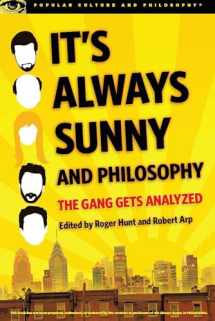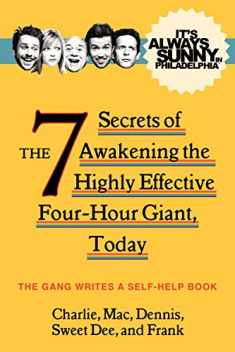
It's Always Sunny and Philosophy: The Gang Gets Analyzed (Popular Culture and Philosophy, 91)
Book details
Summary
Description
Here, philosophers wittily and expertly uncover amazing philosophical insights from the endlessly fascinating TV show, It’s Always Sunny in Philadelphia.
Greg Littmann shows how the values of the gang are the same as those of Homeric heroes. Christopher Ketcham argues that the Church should make Charlie a saint, partly because It’s Always Sunny is all about free will.” Russ Hamer shows how closely the gang’s activities comply with the scientific method. Kyle Alkema and Adam Barkman analyze the way the gang perceives happiness and how they try to get it. Charlotte Knowles considers whether Heidegger would consider members of the gang authentic or inauthentic and concludes that they’re a bit of both. Skyler King examines the morality of the gang’s behavior by the standard of how they respond to extreme suffering. Ethan Chambers agrees that each of the five central characters is a terrible person, but argues that they are not truly to blame for their actions. Fenner Tanswell demonstrates that many of the gang’s wrong actions result not from immoral motives but from illogical thinking. And Robert Arp compiles a hilarious list of historical examples where people acted even more foolishly than the Philadelphia Five.


We would LOVE it if you could help us and other readers by reviewing the book
Book review




